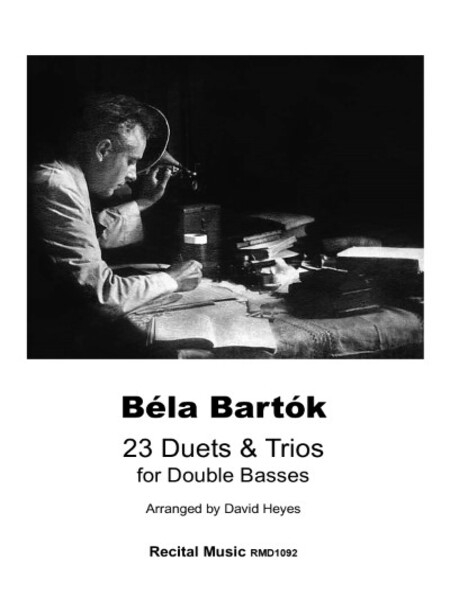Bartók for Basses: 23 Duets & Trios

Composer: Bartok, Bela
Instrumentation: 2 Double Basses, 3 Double Basses
Arranger: David Heyes
Publisher Recital Music
Bartók for Basses brings together a collection of 15 duets and 8 trios for double basses, arranged by David Heyes. Aimed at the intermediate duo…
Page ? of ?
Digital Download – PDF
Shipping costs: No shipping
R.R.P £12.50
Our Price: £10.63




